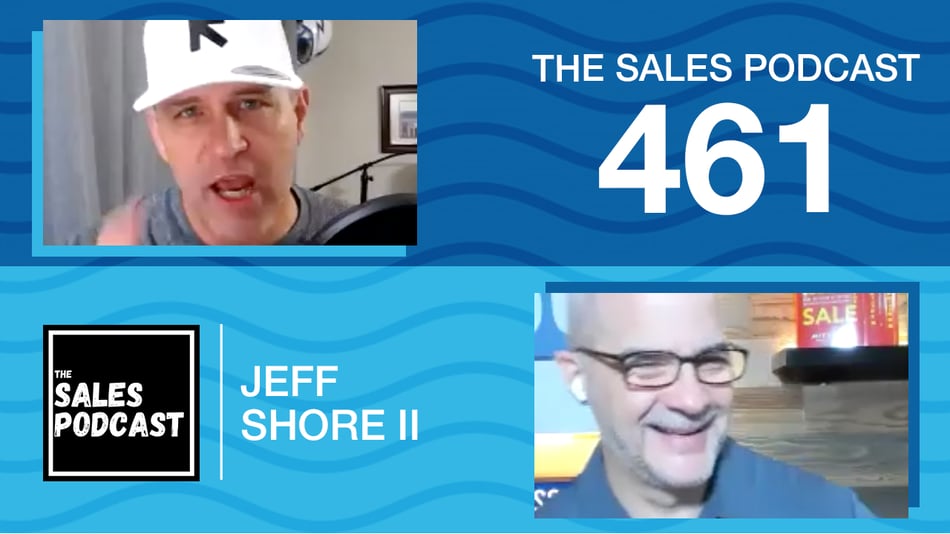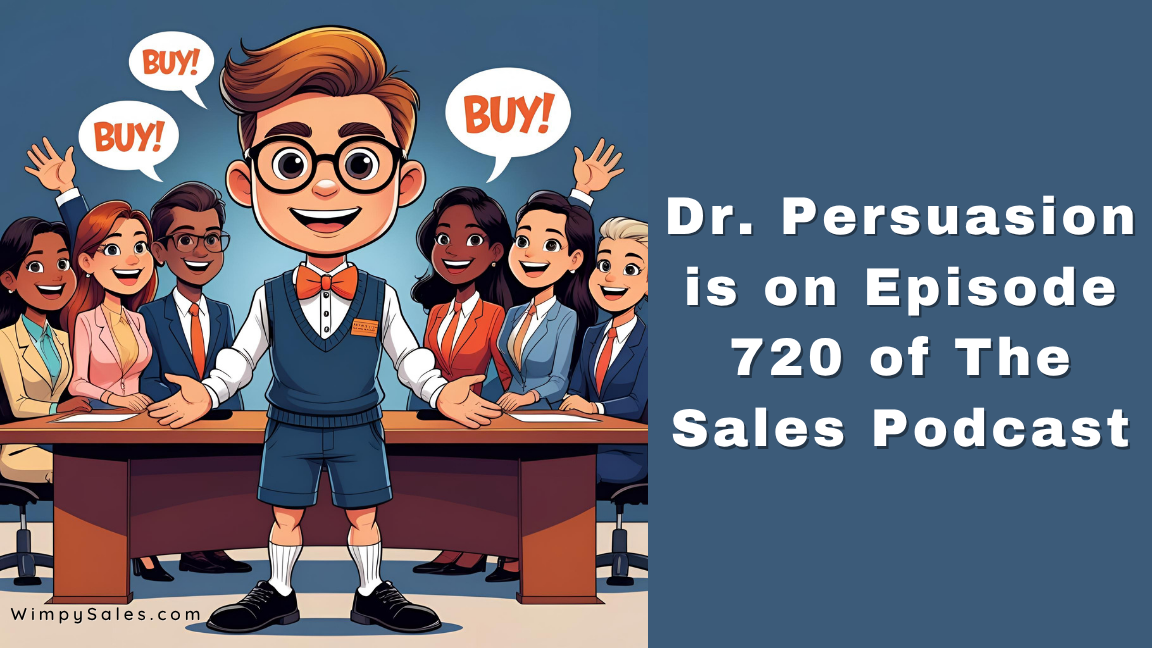Jeff Shore is a "sales wonk" who loves influence and detests "old school selling." (Amen!) Jeff thinks today is a "better day for salespeople," and after running the sales for a Fortune 500 company—where he spent 11 years—he knows a thing or two about selling!
After he climbed the corporate ladder and realized it was up against the wrong wall, i.e., Stephen Covey, he left and has been doing his own sales-training thing for 15 years with his staff of 9.
Hear the rest of his great interview above and see what you'll learn below.
Want to hear how this guest bounced back from losing $2.9 million?
Stream below or right-click here to download.

Sales Tips you'll learn in this episode...
- How to make yourself recession-proof.
- The role of a salesperson in today's transparent world.
- What you need to focus on in the sale instead of the "bright, shiny objects."
- What question to ask the hard-to-please prospect that calls or comes into your place of work to help you take control of the conversation.
- Jeff's "Permission to question" script.
- The main things your customers are looking for.
- How to shift away from "transactional relationships" and into the more lucrative "transformational" relationships.
- How Jeff defines top sales performers and the actions you can take to become one yourself.
- How to stick to your price.
- What you should replace your bucket list with.
Look for transformational vs transactional relationships."
Links Mentioned
- Take The CRM Quiz: get a free consultation with me
- Leadferno: Turn lurkers into leads
- Founders Card: Get $20,000 in free processing from Stripe, save 15% on Bose, and save on hotels, travel, car rentals, you name it.
- Send Drunk Emails: ...that get opened and get you paid!
- Phone Burner: work the phone like a machine so you can be a human when you connect.
- Sendspark: Send video emails that make an impact so you can stand out from the noise. Use promo code SALESWHISPERER to get 33% off for three months
PODCAST INFO:
SUPPORT & CONNECT: Check out the sponsors above; it’s the best way to support this podcast
